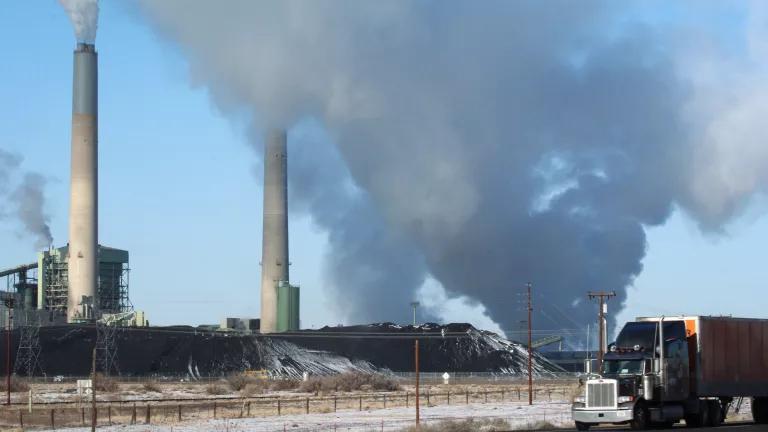VA Water Board Must Protect Water from Pipeline Threats

VA’s greatest opportunity to exercise state oversight of pipeline pollution is coming soon.
The Virginia State Water Control Board will meet on August 21 in Richmond to consider what to do about water quality permits for water crossings of the Mountain Valley and Atlantic Coast Pipelines. Altogether, the two pipelines will cross waterways in Virginia over 1000 times, creating potential opportunities for water pollution from pipeline construction.
The Board could do nothing and let the projects proceed using something called “Nationwide Permit 12” – a blanket permit issued by the Army Corps of Engineers that can be used for certain projects across the country, including pipeline construction. But the current pipeline construction plans that would be approved under Nationwide Permit 12 are inadequate to protect water quality in many Virginia streams, rivers, wetlands, reservoirs and springs.
Fortunately, Virginia reserved the right to look closely at any use of NWP12, which could include requiring the pipeline owners to submit applications for individual Virginia Water Protection permits, to be reviewed by the Virginia Department of Environmental Quality (DEQ). This would be logical, as Virginia state regulations dictate that such individual permits should be used where indicated due to “concerns for water quality and the aquatic environment.”
The Water Board now has the opportunity to step in and stop the Trump administration’s move to approve these pipelines using only the Army Corps’ Nationwide Permit 12, since it does not have adequate protections in place for individual Virginia waterways. Instead, the Board should move forward with a thoughtful approach that considers the risks at unique crossing sites, fulfilling its duty to ensure that pipeline construction doesn’t violate state water quality standards.
Earlier this summer, the Board asked for public comments on the use of Nationwide Permit 12 for these pipelines. Thousands of Virginians wrote to the Board with details that make clear there are indeed “concerns for water quality and the aquatic environment” at many of the water crossings planned for these pipelines.
There is evidence showing that, as proposed, these pipelines pose threats to Virginia waters. MVP and ACP have already received Notices of Violation for alleged violations of Virginia rules established to protect water. Citizen groups have been hard at work monitoring pipeline construction using drones, planes, and on-the-ground investigation. The group Mountain Valley Watch has submitted 58 reports to DEQ where its experts have documented what they believe to be improper erosion controls at southwest Virginia construction sites.
As just one visual example of the potential threats to clean water from pipeline construction, these photos were taken on the same day (August 2), one mile apart, on the North Fork of the Roanoke River in Montgomery County, Virginia. One photo appears to show clean water a 1/2 mile above a MVP water crossing site. The water is so clear that you can see rocks beneath the surface even from a distance. The second photo appears to show sediment in the water just a 1/2 mile below the water crossing.
Construction is now halted on both MVP and ACP due to inadequate environmental analyses by federal agencies tasked with protecting natural resources and endangered species. Sadly, it took a legal battle to make that happen. The U.S. Court of Appeals for the 4th Circuit recently ruled in unanimous opinions that the U.S. Forest Service and the Bureau of Land Management violated federal laws when they approved MVP construction in the Jefferson National Forest, and that the National Park Service and the U.S. Fish and Wildlife Service violated federal laws when approving ACP construction that would cross the Blue Ridge Parkway and Appalachian National Trail and harm federally protected endangered species.
But these halts may not be permanent, so the Water Board must take a stand to protect Virginia waters and uphold Virginia state water quality standards. Residents in Virginia have already documented signs of pollution to waterways near their homes. And 16 Virginia state legislators recently called on the Water Board to “direct the DEQ to conduct stream-by-stream analyses of all proposed crossings in Virginia using the Clean Water Act Section 401 authority,” instead of relying solely on a Nationwide Permit issued by the Trump administration that is not protective of Virginia waters.
Defects in the current pipeline plans include the following:
- Permit plans and engineering drawings do not include site-specific plans, calculations, or documentation for each stream crossing, and therefore fail to consider the unique and varying site conditions at each stream crossing. For example, site-specific flow calculations are essential to determine if pipelines will remain stable over time in a particular site, if streambanks will remain stable, and if there will be erosion and sedimentation leading to water contamination.
- The stream crossing impacts are impossible to assess because the construction methods for some crossings are not specified, a deviation from widely accepted industry practice. There is no evidence that crossing methods were selected to minimize impacts. In addition, there are different standards for ACP and MVP that are not based on science. The stream crossing methods for most crossings are identified as types of “dry-ditch” methods—even though it is well documented that horizontal directional drilling can prevent or minimize impacts to water quality standards in many crossing conditions.
- DEQ identified more than 20 site-specific conditions that should be evaluated as potentially critical areas that may be particularly sensitive to water quality impacts, such as steep slopes, highly erodible soils, and trout waters, but these site-specific conditions were not addressed in permit documents. There is no indication that the design engineer considered these sensitive site-specific conditions and there is also no information on the plan sheets to indicate to the contractor doing the work on the ground that the conditions exist at a specific crossing.
- The pipeline plans and Nationwide Permit ignore the cumulative effects of multiple crossings of the same stream or in the same watershed.
- At least 81 crossings for ACP and many for MVP are omitted from DEQ documents, and others are mischaracterized. There are numerous where crossing ID numbers provided in permit documents do not correspond to crossing ID numbers in design documents. Crossings not identified or mischaracterized cannot be adequately reviewed under the Nationwide Permit.
- The Nationwide Permit does not ensure that projects will meet state standards. For example, it does not protect groundwater, which is a priceless source of drinking water for many Virginia families and farms, or recreational uses that are prized by many Virginians, even though those resources are required to be protected under Virginia state law.
We hope that the Water Board members will carefully consider all of the glaring evidence that makes clear that the exclusive reliance on Nationwide Permits for ACP and MVP is insufficient to protect Virginia water quality. NRDC urges the Water board to require individual Virginia Water Protection permits for these massive, dirty pipelines and protect Virginia waters.




